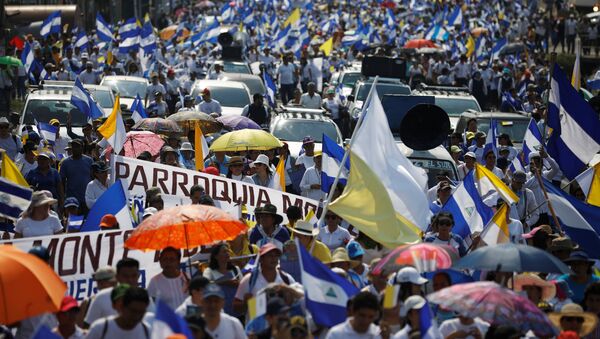The country has seen weeks of deadly protests against President Daniel Ortega and his policies, in particular in the area of social security, in the capital and other cities. Dozens of people were reportedly killed.
Students, private sector workers and others joined the demonstration organized by the church, the ITV broadcaster reported.
Today’s giant march in Nicaragua pic.twitter.com/l7n7NRZx4w
— JesseJT (@followthestorms) April 28, 2018
On Monday, private businesses held another protest.
The current #Nicaragua political crisis, decades in the making, calls for a Nicaraguan solution led by the Nicaraguan people, not outside actors such as the @OAS_official or @UN or regional "working groups". Nicaraguans know best what is in the best interests of their country. pic.twitter.com/yw2rFWhCSS
— Jason Poblete (@JasonPoblete) April 29, 2018
The reform proposed by the government increased taxes paid by workers and employers and cut down pensions. After a series of violent clashes between protesters and the police, Ortega publicly announced last week that he would not go through with the reform. The president also proposed to hold meetings with representatives of various sectors of the society.
#Nicaragua 🇳🇮: the people of #Managua out in the streets to demand democracy. #SOSNicaragua pic.twitter.com/cMuLyGbAPB
— Thomas van Linge (@ThomasVLinge) April 28, 2018
However, the peaceful demonstrations continued. The protesters are now demanding Ortega's resignation.
Masses join for the marches today in Nicaragua #SOSNicaragua pic.twitter.com/roSX7peq7x
— 🖤 #SOSNicaragua (@LifeWLemons) April 28, 2018
On Friday, National Assembly head Gustavo Porras announced the creation of a truth commission to look into what happened during the protests, including into the high number of deaths.


